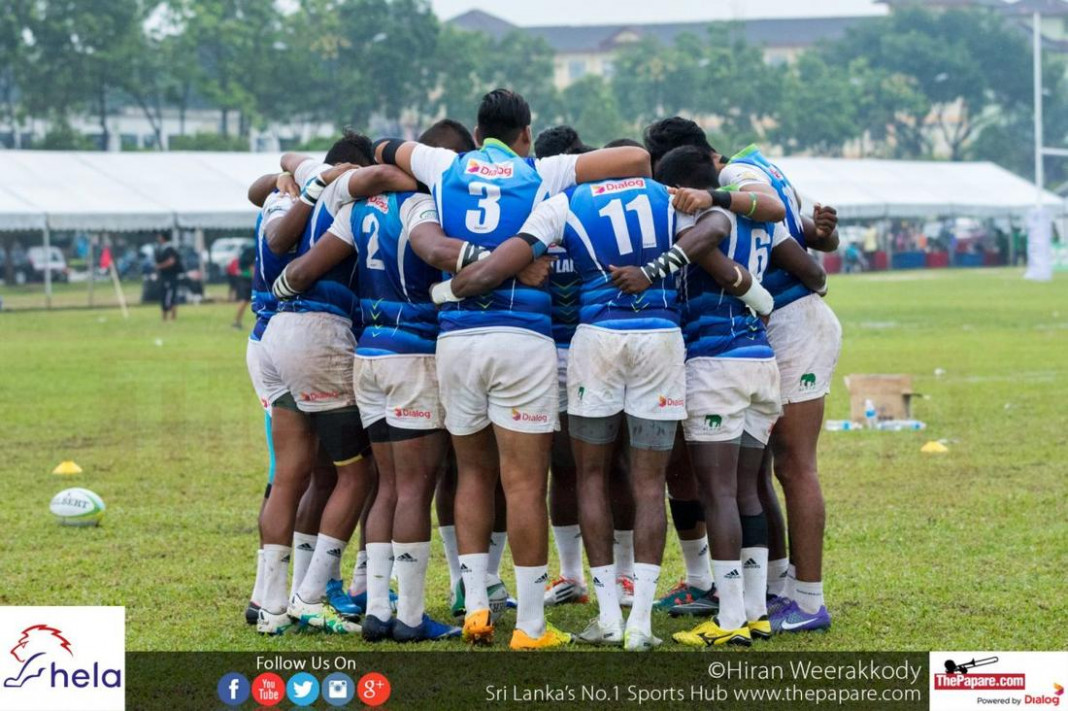Sitting in the Racecourse Ground Stadium watching the Sri Lankan U18 Rugby Sevens team training, I wonder how the recent success of the U20 Sevens team in the Asian Championship will affect these players.
We all know that success is built on hard work and a single minded focus but teams also need good management, planning and a touch of good fortune to exploit the star qualities these teams possess. So who are the stars of the future from our youth ranks and how are their talents being developed?
To answer these questions and more I began by asking the High Performance Manager for the Sri Lankan Rugby Union, Inthi Marikar.
Who is the star of the Sri Lanka U20 Rugby Sevens team?
“The real star of this team is that there is no star. No player is bigger than the team. The star quality they have is their team culture”.
So how did this culture develop and how is development continuing?
“The team culture at the U20 level began when the players made the Sri Lankan U18 squad and formed friendships that endured over the last few years, despite the boys playing for different schools, and now we are working with the players so they understand why Rugby is played the way it is and not just how to play it,” replies Marikar, “Now that the players are understanding why certain patterns are played, and areas of the field are attacked, they are able to self-coach each other”.
To get a team to the point where they are self-coaching takes a special group of players and coaches with a system that facilitates a collaborative style that the All Black team adopted under Sir Graham Henry’s watch. This collaborative style of coaching gives responsibility and ownership to the whole team not just the management. It gives discipline, time-keeping and the setting of team standards over to the leadership group selected from the players. The responsibility for maintaining those standards and administering discipline lies with the playing group. Players and coaching staff discuss the patterns and shape of the attack and defence so all involved have ownership of the team and its successes and failures are shared by everyone.
It starts with the players’ mentality. A humble team player who constantly searches for improvement is a great start but these players come along only once in a generation. Sri Lanka is blessed with a core group in the U20 and U18 squads that consistently give effort after effort for their team mates.
Why? Because the coaching team of Sudath Samath and Mushtaq Jiffrey coaching the U20 and U18 respectively have given away some of the control and trusted in the collective ownership and responsibility of the group to get the job done. This combination of coaching staff and players are looking to learn from each other every time they train together.
Now that they have added Nick Groube, Strength and Conditioning Trainer from the Crusaders in New Zealand, to the mix, the future is looking bright. Groube writes schedules for players to maintain core fitness during the year, and peak for tournament play, as he did with the most successful Super Rugby franchise in history. “It’s all about forward planning, collecting relevant data on the players and feeding that back into their schedule not just looking at who scores tries.
It’s about who does the work for the team that’s important,’’ states Groube.
“Our goal is the 2018 Asian games and we will need to play 18 to 20 tournaments between now and then to continue with the development of this group and introduce them to the pressures of Rugby at the senior level”, continues Marikar. “Planning for the future will give the best chance of success”.
Next up is the U18 tournament in China followed by possible tournaments in New Zealand and Dubai for all of the Sri Lankan squads later in the year.
As the Sri Lankan rugby public looks on and applauds the efforts of these young men we must remember there will be many obstacles in their way. For the Rugby ball bounces in an unpredictable way, and that’s how we like it, but for the U18 and U20 squads the ball is bouncing like their team culture: straight and true.




















